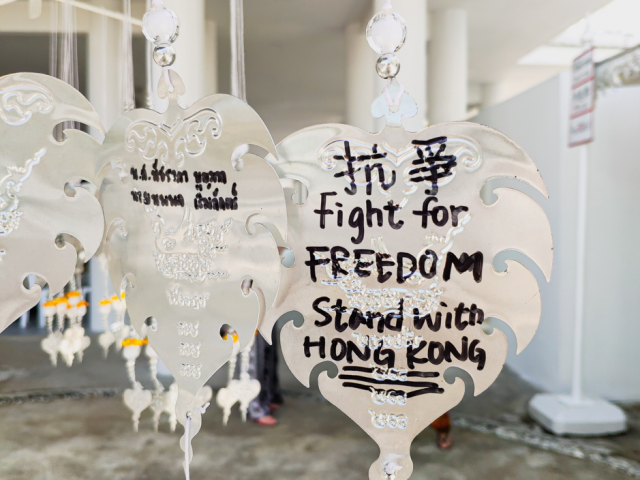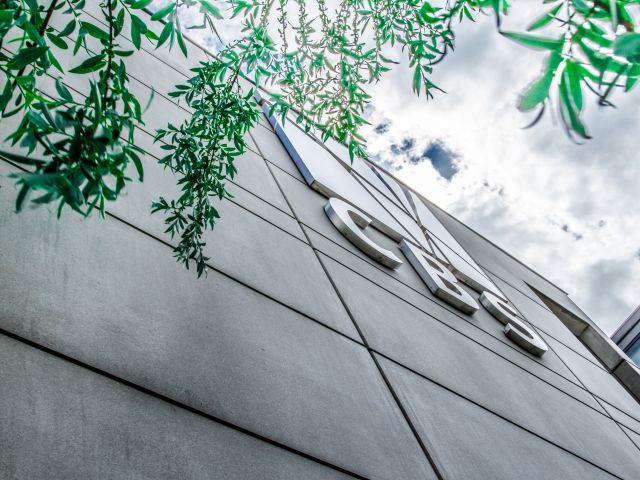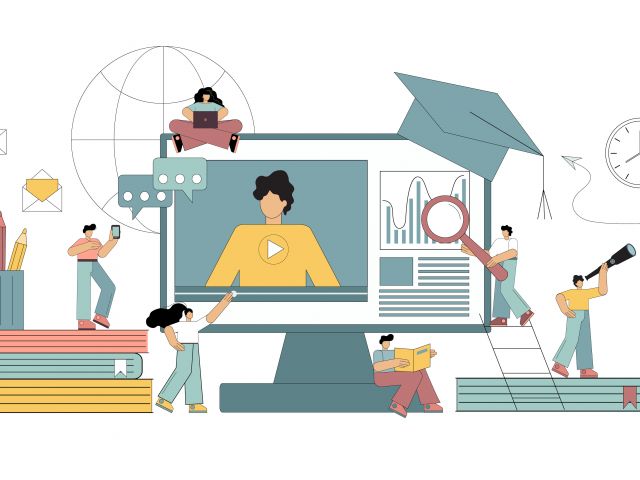Are we being lied to?

If we could think of pronouncing a winner in the corona crisis championship, it would be digitalization. So at least CBS management must be happy.
Dear CBS students, all of you, even in this era of Covid-19, please remember the value of your education.
Whereas you started university on 1 September, the lucky ones among a sea of extra applications flooding into university admissions departments due to cancelled gap years and travel plans, I am now taking a break
I have decided that my education is worth more than the 50% online teaching solution CBS can currently offer. Not to mention the university’s long-term digitalization plans.
Digitalization has stopped lurking beneath the surface
Plans to expand online teaching have been lurking under the surface of CBS’ agenda for years. Today, the coast is clear. The government’s social distancing rules have served as the perfect physical-spatial excuse to head off into cyberspace. From 1 September 2020, 50% of all teaching will be happening online. Because of Covid-19, those at the helm of CBS are battening down the fast-forward button and ordering oceans of online lessons.
Perhaps alarm bells are ringing in the distance as a sinking feeling sets in
And fair enough. It’s a critical time that calls for critical measures, you may think. No need for concern. CBS management announcements reassure us that the 50% is simply to comply with government restrictions. A temporary measure. Yet, think again. By 2023, CBS management plans to have realized the flagship project it calls ‘blended learning’. Blended what? More blended physical and digital learning.
Perhaps alarm bells are ringing in the distance as a sinking feeling sets in.
Naïve? Who?
At business school, we understand that digitalization is not only a means of resolving spatial problems. Digitalization speaks the language of truth that we are all taught at this university. The language of economics or, to be even more precise: the language of the market. In other words, digitalization is efficient, so it is important.
You might be thinking that uniting economics with truth is narrowminded. And maybe it is, but narrow minds can also be right. Foucault called this definition of truth ‘market verification’, explaining that it is the role of the market to verify or falsify good leadership.
This means that if digitalization at CBS is economically reasonable, it will verify the digital direction set by its management. In essence: It is naïve to think that most of the ‘effective’ corona digitalization at CBS is not here to stay.
Who can we trust?
I can’t see you. But can you hear me out there?
And I have more questions for you, dear students of 2020.
Because though you might feel powerless to influence the economic rationale thrust upon you by CBS management, you still have a say. What do you think about being reduced to ether in the eyes of your university? When it comes to your education, should economic efficiency be of prime importance?
And since digitalization at CBS is financially reasonable, do you even care if you are being lied to?
Please remember, if and when this pandemic ends, that the education offered to you by a university should consist of more than you, dazed and fading in and out of an on-screen existence, watching a ghost-like and equally frustrated professor explaining something like a Youtube video from 2008. All while your fellow students’ life-energy, like yours, drifts away on the waves of adversity flowing from a Microsoft Teams browser. I can’t see you. But can you hear me out there?


































































































































CBS has been trying to save money since I started there in 2003. However, the buildings they had built were brand new, and during that time they built Prismen and Porcelænshaven. It takes many years for them to get the full value out of those assets so I would not worry too much when the pandemic is over. Furthermore, the company sponsors at CBS want to show off their investment to attract the best students. Beautiful educational facilities are pretty good branding, and if you are used to studying and working in a beautiful place you would prefer to keep it that way after you finish studying. I know I did. Unless you are among the top 5% of students it will most likely not happen, but that is a different story. It was a well-written story.
I totally agree with Morten Levinsens blog. Right now we are under rules that are imposed on CBS. But the experience we get with online teaching ought to mean that CBS’ blended learning strategy must be very seriously reconsidered. Online teaching is nowhere near physical teaching and interaction in the class room and can never give the same quality. In my view online teaching is awful for both students and faculty.
Great post. These concerns are shared by many among the faculty as well. A good reminder that we should move beyond the dividing student/teacher boundary when mobilizing to defend and rethink the purpose of education and universities. Reducing teaching to self produced videos, that the internet is already full of, just with better quality, is not probably the way we should equip both students and faculty to attend and embrace the complex and uncertain issues we are facing.
Well said Morten. Even as we are all struggling to do our best to maintain quality education during the corona crisis, we should be very attentive to the economic rationales that can piggy-back on such a crisis. And to nurture the other ‘languages’ – not just that language of the market – that are also taught at CBS. These languges include community, sustainability and care for people and learning.